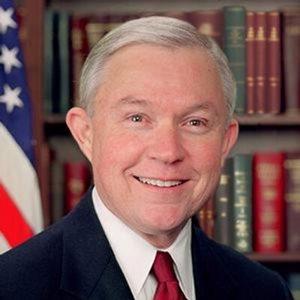In South Dakota, testing positive for drugs is a felony.
The US Attorney for Eastern Pennsylvania tries to scare away a proposed safe injection site in Philadelphia, Malaysia's cabinet puts a "moratorium" on the death sentence for a medical marijuana provider -- and the country is likely to end the death penalty entirely as a result of the case -- and more.
The Justice Department creates a new anti-cartel task force, a California summit will address issues around chronic pain and the war on drugs, the New York Assembly holds a hearing on marijuana legalization, and more.
Marijuana is now legal in Canada, the Canadian government moves to allow pardons for people busted with small amounts of it, a Vermont governor's council rejects safe injection sites, and more.
The founder of the Congressional Cannabis Caucus has a plan to move legalization forward next year, Canadians are buying marijuana online like crazy, the INCB isn't happy about it, and more.
Like other Great Plains states, South Dakota has a methamphetamine problem. But it's becoming increasingly evident that South Dakota also has a problem with the way it deals with meth.

South Dakota women's prison in Pierre (KELO-TV screen grab)
Because of its strict drug laws, the state is seeing a dramatic spike in women being sent to prison for meth. According to a
new report from the nonprofit South Dakota News Watch, the number of women in prison in the state has jumped 35 percent since 2013, while the male prison population has increased at only one-quarter of that rate. Nearly two-thirds of all women prisoners in the state are there for nonviolent drug offenses. The state now has the fourth-highest incarceration rate for women in the country, trailing only Oklahoma, Wyoming, and Kentucky.
Overall, about one-third of all inmates in the state are doing time for drug-related offenses, the majority of them for simple drug possession. That's a higher percentage than most other states, where drug offenders tend to make up somewhere around 20 to 25 percent of the inmate population.
The high drug-related incarceration overall and for women in particular stems less from the prevalence of drug use than from the conservative, largely rural state's reaction to it. South Dakota has not responded to decades of failed war on drug policies by reforming them, but by doubling down on them.
The state has not moved toward the defelonization of drug possession, as at least 16 others have. Instead, it has moved in the opposite direction. South Dakota has mandatory sentencing laws that include prison for not only for the manufacture and distribution of meth but also for simple possession.
State lawmakers and cops have long favored tough drug laws, and they are still at it. This year, state Attorney General Marty Jackley (R) guided bills through the legislature that heighten penalties for meth dealing and increase sentences for dealers whose clients overdose and die.
But the state's most notorious and contentious drug law -- bone that is sending hundreds of people to prison -- is the state's "possession by ingestion" statute. Otherwise known as an "internal possession" law, the statute allows for a felony conviction if a drug test reveals the presence of illicit drugs in a suspect's system. (The law also applies to marijuana, but the penalty for testing positive for pot is only a misdemeanor.)
The strictest in the nation, that law was upheld by the state Supreme Court in 2004. Last year, a bipartisan group of lawmakers filed a measure that would have slightly tweaked the law by removing marijuana, but that bill was killed by a unanimous vote in the first committee that heard it.
As of August, about nine percent of the male prison population and an astonishing 21 percent of the female prison population was doing time for unauthorized ingestion of a controlled substance. That's right: More than one out of five women prisoners in South Dakota is behind prison bars for nothing more than having used drugs.
South Dakota law enforcement and lawmakers may be happy with the status quo, but the man who actually runs the prison system isn't. State Corrections Secretary Denny Kaemingk told South Dakota News Watch that the cops' and courts' proclivity for busting and imprisoning women on drug charges is creating an expensive and ineffective cycle of imprisonment, release, and recidivism.
"We seem to think that locking individuals up is going to solve their addiction problem," said Kaemingk, a former drug officer. "They're coming to us in corrections and we're thinking that solves the problem, and I think in many cases it makes the problem worse."
Criminalizing addiction, especially among women who are mothers, Kraemingk said, creates a situation where the children are more likely to end up in prison themselves. He pointed to national studies showing that up to 80 percent of children who have parents behind bars will end up there themselves.
"Imprisonment in South Dakota is generational," Kaemingk said. "The females behind prison walls have experienced that as a child. The generation we have back there now as inmates experienced the same things when they were children."
Kraemingk and other relatively enlightened actors in the state are pushing for enhanced treatment opportunities and expanding drug courts, among other measures, to better deal with the situation, but nobody seems to be talking about not involving these women in the criminal justice system in the first place. A first step would be getting rid of that hideous "possession by ingestion" statute. The next step would be defelonization or outright decriminalization of drug possession in the state. Drug use absent harm to others should not be the state's business.
This article was produced by Drug Reporter, a project of the Independent Media Institute.
back to top
The US Attorney for Eastern Pennsylvania tries to scare away a proposed safe injection site in Philadelphia, Malaysia's cabinet puts a "moratorium" on the death sentence for a medical marijuana provider -- and the country is likely to end the death penalty as a whole because of the case -- and more.

The specter of a safe injection like Vancouver's InSite in Philadelphia garners a warning from the federal prosecutor. (CC)
Washington State Regulators Put Temporary Hold on Pot Candy Ban. The State Liquor and Control Board last week announced a ban on certain marijuana-infused candies, but now says it will hold off on the ban for a month in order to allow marijuana industry groups to present alternative rules. The board will now accept public comment for 30 days before taking up the ban again.
Wisconsin Senate Candidates Clash Over Marijuana Policy. US Senator Tammy Baldwin (D) and her Republican challenger, Leah Vukmir, clashed over marijuana policy during a debate Saturday night. Baldwin said she would support changing marijuana from Schedule I to Schedule II to allow the drug to be researched for medical purposes. Vukmir responded by that it was "concerning" that Baldwin would support legalization (Editor's Note: She didn't). She also called marijuana highly addictive and suggested it would worsen the opioid crisis.
Harm Reduction
Philadelphia US Attorney Warns on Safe Injection Sites. The US attorney for the Eastern District of Pennsylvania, William McSwain, warned Saturday against the city moving forward with plans for a safe injection site. "This sort of facility that is being proposed is illegal under federal law," he said. He added that his office is reviewing possible options to stop it, including court orders, blocking the opening of the facility, and even possibly arrests and prosecutions. "Nobody is above the law -- and by that I mean nobody," McSwain said. "I mean the leaders who would be involved in setting up this proposed deadly drug-injection site, the board members… the city officials who would be involved in supporting it, the medical personnel who might be staffing it or the folks who might be using the drugs."
International
Malaysia Medical Marijuana Distributor Death Sentence on Hold as Case Prompts Likely End to Death Penalty Entirely. The Malaysian cabinet has agreed to place a moratorium on the death sentence for Muhammed Lukman, who was convicted of possessing, processing, and distributing cannabis oil. "As a consensus, we agreed that it (death penalty) should not have been imposed. At the same time, we have also agreed to put a moratorium on his death penalty," Youth and Sports Minister Syed Saddiq told reporters.
But that's not all. The case has catalyzed a likely end to the death penalty in Malaysia entirely, with political figures up through the Prime Minister calling for it. Saddiq said about the issue, "[I]t's two accounts. One is the death penalty as a whole, which will be taken down. And second, at the same time, the usage of medical marijuana should never be punished by death penalty." He also said the Cabinet had agreed that patients who used medical marijuana should never be punished by the law.
Lukman was arrested in December 2015 for possessing 3.1 liters of cannabis oil, 279 grams of compressed cannabis, and 1.4 kilograms of "substance containing tetrahydrocannabinol (THC)."
(This article was prepared by StoptheDrugWar.org's 501(c)(4) lobbying nonprofit, the Drug Reform Coordination Network, which also pays the cost of maintaining this website. DRCNet Foundation takes no positions on candidates for public office, in compliance with section 501(c)(3) of the Internal Revenue Code, and does not pay for reporting that could be interpreted or misinterpreted as doing so.)
back to top
The Justice Department creates a new anti-cartel task force, a California summit will address issues around chronic pain and the war on drugs, the New York Assembly holds a hearing on marijuana legalization, and more.

Attorney General Sessions (R) wants more, better drug war aimed at cartels and MS-13. (senate.gov)
New York State Assembly Holds Hearing on Marijuana Legalization. Four legislative committees held a joint hearing on marijuana legalization in Albany Tuesday. The hearing covered how marijuana should be legalized, taxed, and regulated. The hearing comes ahead of next year's legislative session when lawmakers are expected to take up proposals to legalize the herb.
Medical Marijuana
New Jersey Will Let Dispensaries Post Price Information. State officials announced late last week that medical marijuana dispensaries can post their product prices online, so now patients can shop around and be better-informed consumers. "Medical marijuana patients should benefit from online price information just as shoppers do when they buy a car, a plane ticket or any other consumer goods," Department of Health Commissioner Shereef Elnahal said in a statement. Listing prices is not mandatory, however.
Heroin and Prescription Opioids
California Pain Summit Set for Next Month. Over a hundred California physicians, administrators, policymakers, and advocates will be meeting at the For Grace's Change Agent Pain Summit in Los Angeles on November 2. For Grace is a group devoted to dealing with women's issues around pain. The aim of the summit is to create a patient-centered state-level pain policy is to localize key recommendations from the National Institutes of Health's National Pain Strategy in the Golden State. Among those attending will be Diane Hoffman, director of the Law and Health Care Program and Jacob A. France Professor of Health Care Law at the University of Maryland. "There's an imbalance in our drug control laws and policies between treating pain and reducing drug diversion and addiction. And it's hurting pain patients," said Hoffman. "The efforts to restrict prescribing and eliminate Medicaid coverage of opioids, like what has been proposed in Oregon and the outright abandonment of patients is outrageous. We need more leadership from the medical community," she added.
Law Enforcement
Justice Department Creates New Task Force Targeting Cartels, MS-13. Attorney General Jeff Sessions announced at a Washington conference Monday that the Justice Department has created a new task for aimed at breaking three Mexican drug cartels and the MS-13 street gang. Sessions described the groups, along with Hezbollah, as top transnational organized crime threats and said DOJ would "develop a plan to take each of these groups off the streets for good." The three cartels named are the Sinaloa Cartel, the New Generation Jalisco Cartel, and the Gulf Clan. All of this because the last half-century of drug prohibition has worked so well.
New Jersey Legislative Committee Advances Parole System Reform. The Assembly Law and Public Safety Committee voted 4-3 Monday to advance a bill, Assembly Bill 1986, which rewards good behavior and encourages rehabilitation by allowing for the release of low-risk individuals from prison after they have served their basic sentence, provided they commit no serious disciplinary infractions while incarcerated and participate in rehabilitation programs.
back to top
Marijuana is now legal in Canada, the Canadian government moves to allow pardons for people busted with small amounts of it, a Vermont governor's council rejects safe injection sites, and more.
Marijuana PolicyNorth Dakota Legalization Opponents Get Big Out-of-State Bucks. Opponents of the Measure 3 legalization initiative are far out-fundraising proponents, thanks almost entirely to an out-of-state anti-marijuana group and in-state business groups. The anti-legalization SAM (Smart About Marijuana) has provided 100% of the funding for Healthy and Productive North Dakota, giving more than $50,000 in cash and more than $100,000 in in-kind donations, while a second anti-pot political action committee, North Dakotans Against the Legalization of Recreational Marijuana, has raised more than $116,000 from in-state business groups and political figures. Pro-legalization PACS have received only about $10,000 in cash and $14,000 in in-kind donations, with over half the cash coming from donations of under $100.
Harm Reduction
Vermont Governor's Opioid Council Rejects Safe Injection Sites. Gov. Phil Scott's (R) Opioid Coordination Council released a report Monday in which it says that the risks of operating a safe injection site outweigh any potential benefits of reducing overdoses and getting more people in treatment. Safe injection sites are "not a viable option for Vermont," the report says. "They are illegal under federal law and highly controversial. Cost-effectiveness and neighborhood impacts are unknown. Most importantly, they have an unproven track record of harm reduction and for providing a pathway to treatment." Some state officials support safe injection sites, but the council concluded that more study on the sites' effectiveness is needed.
International
Canada Legalizes Marijuana Today. Legal marijuana sales and commerce began in Canada today, just four months after the parliament approved marijuana legalization legislation. The first sale was made at 12:01am in Newfoundland. Canada becomes the second nation to free the weed, after Uruguay, and the largest national legal marijuana market. (It's still smaller than the legal market in the US state of California.)
Canada Will Pardon People Busted With Less Than 30 Grams of Marijuana. As the country enters the era of legal marijuana, the government is moving to pardon people who were arrested for possession of less than 30 grams of weed -- the amount now legal for personal possession. People seeking pardons will have to apply for them.
back to top
The founder of the Congressional Cannabis Caucus has a plan to move legalization forward next year, Canadians are buying marijuana online like crazy, the INCB isn't happy about it, and more.

Rep. Earl Blumenauer (D-OR), head of the Congressional Cannabis Caucus, has a plan to free the weed. (house.gov)
Earl Blumenauer Sends Marijuana Legalization Blueprint Memo to Democratic Leadership. Rep. Earl Blumenauer (D-OR), founder of the Congressional Cannabis Caucus, sent a memo Wednesday to the Democratic leadership laying out the steps Congress should take to legalize marijuana. "Congress is out of step with the American people and the states on cannabis," Blumenauer. "We have an opportunity to correct course if Democrats win big in November. If we fail to act swiftly, I fear as the 2020 election approaches, Donald Trump will claim credit for our work in an effort to shore up support -- especially from young voters," Blumenauer said. "Democrats must seize the moment."
Medical Marijuana
Missouri Medical Marijuana Initiatives Raised Big Bucks. Two of the three medical marijuana initiatives appearing on the November ballot have successfully raised large amounts of money for their campaigns. New Approach Missouri, the group behind Amendment 2, has raised more than $1.3 million, including $285,000 from Drug Policy Action, the advocacy arm of the Drug Policy Alliance. Amendment 2 would impose a 4% on medical marijuana sales. Find the Cures, the group behind Amendment 3, which would impose a 15% tax, has raised more than $1.7 million, with $1 million coming from Springfield lawyer and physician Brad Bradshaw, who heads a board that would license medical marijuana businesses.
International
Canadians Bought Pot Online 100 Times a Minute on First Day of Legalization. Canadian online cannabis shops powered by Shopify's e-commerce software processed more than 100 orders a minute on Wednesday, the first day of legalization north of the border. Shopify said it processed "hundreds of thousands" or orders Wednesday and the online stores had seen "millions of visitors."
International Narcotics Control Board Slams Canada Legalization. The Vienna-based INCB has released a statement calling Canada's legalization of marijuana incompatible with UN international drug treaties. "The legalization by Canada of cannabis for non-medical purposes is incompatible with the legal obligations incumbent on states parties under the international drug control framework," the INCB said. INCB President Viroj Sumyai also said the body is "deeply concerned about the public health impact of these policy choices on the health and welfare of Canadians, particularly youth." The INCB said it would remain engaged with Canada and would examine the issue at its next session, set for the first half of November.
back to top




